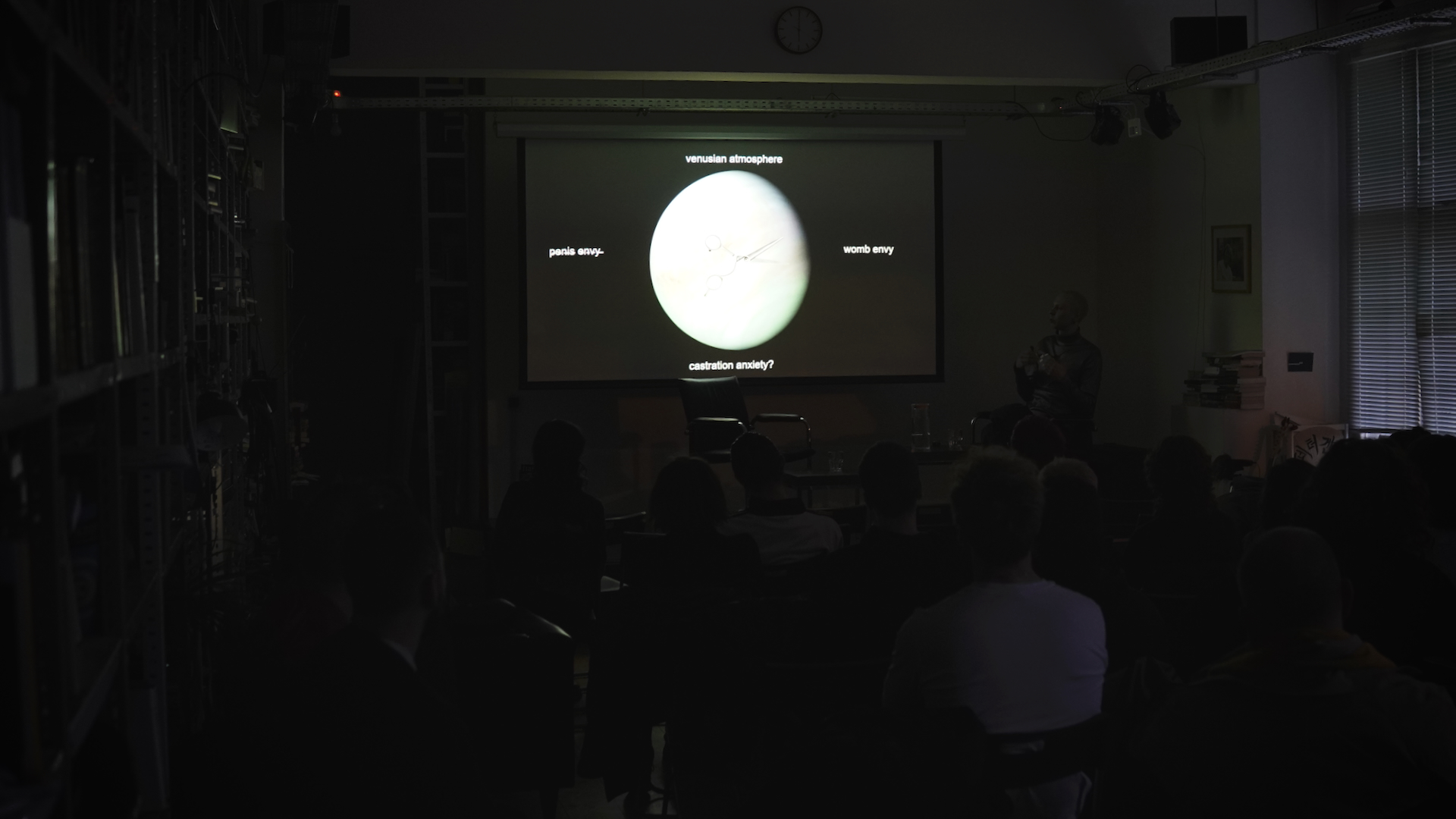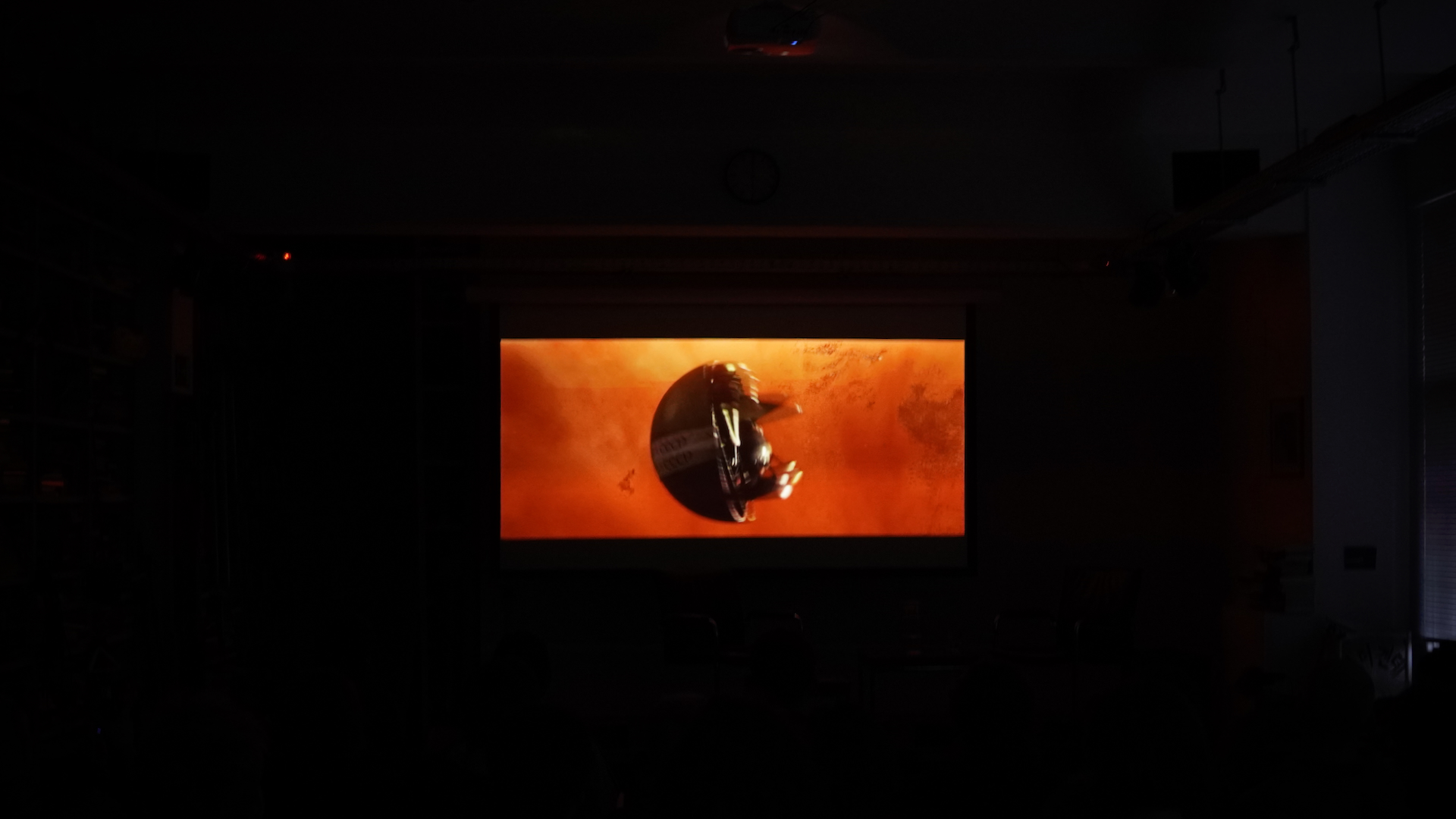Wednesday, 24 April 2024, 7.30 pm, diffrakt | centre for theoretical periphery
Film screening and conversation with
Andrey Shental | Elena Vogman
Outer space has long served as a screen for political, gender and familial projections. For capitalist hegemony it was a realm for colonisation and resource extraction, for “actually existing socialism” it was supposed to represent a space of solidarity and equality. Due to its proximity to Earth, Venus acted as a macabre sister in a sibling rivalry with the Sun. Venus became the ultimate cishet male fantasy as it was feminised or even portrayed as a dreadful vagina dentata in both mass-cultural and scientific representations.
Venus, the brightest object in the sky, ignited the beginning of space odysseys and also marked the culmination of the space race. After penetrating the underbelly of its mysterious atmosphere and capturing its surface for the first time, the longing to discover other forms of intelligent life within reach have relinquished and earthlings were confronted with cosmic loneliness. The fate of space exploration in the 21st century is to be a private enterprise, tourist attraction for the ultra-rich, destination for the cosmic “white flight”.
The primary impetus behind “venusianism” – the attempt to comprehend the incomprehensible – is the thirst for knowledge and the desire to observe distant planetary landscapes. However, this scopophilic impulse has never been neutral but was driven by the visual colonisation of uncharted territories. The exploration of Venus (an American failure and Soviet success) cannot be separated from what Paul Virilio called the industrialisation and militarisation of the optical field. The series of missions to Venus known as “Венера” (Venera, Venus), produced in the USSR between 1962 and 1983, were part and parcel of a military-industrial complex and imperialist techno-science.
Yet, the story of Venus is also a tragic tale of “suicide cameras,” in the words of Harun Farocki: envoys for the human sensing body. Dressed in full metal jackets, the “Veneras” from the first to the sixteenth model were destined to experience adverse climatic conditions and doomed to imminent death. These victims of technological progress, who brought so much invaluable data, receive, however, insufficient recompense. Could one finally acknowledge the agency of spacecraft, rockets, orbiters, or landers and feel compassion for Venera’s own feelings? Is it possible to release outer space from ideological projections and demilitarise perception?
Andrey Shental will share his research from family archives on optical space exploration as well as space age-inspired mass culture. After showcasing examples of Soviet educational films and international sci-fi cinema, he will present the director’s cut of his video project about the 13th Venera mission. The screening will be followed by a conversation with the media scholar and independent curator Elena Vogman.




